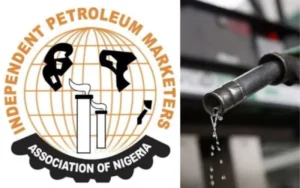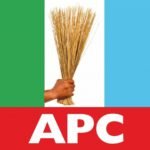It was former Nigerian Military President, General Ibrahim Badamasi Babangida who, in an answer to a question as to why he would rarely step back from a course of action he had taken while he was Head of State, despite criticisms, quipped: “History will forgive you if you make a wrong decision but history will never forgive you if you don’t make any decision at all.”

This quip, often quoted in political conversations and commentaries in Nigeria, has come handy in this write-up because it may just help us to illuminate the mess that our downstream oil sector politics has become and how messier still it may become, going forward, because the oil minister and over all supervisor of the critical industry seems only too content to simply sit back and watch the mess, wearing a mirthless grin on his face.
The nation’s downstream sector policy has never been so ill-defined. It is as if the only thing the president and oil minister has done about that sector of the crisis-ridden, theft-challenged oil industry that we can easily recall is the off-script ‘fuel-subsidy-is-gone’ declaration on May 29 last year, his inauguration day. Or who remembers anything else? And yet the sector, and with it practically the entire country, has been in turmoil over the past one year and half because of that declaration. Nobody is leading from the front, it is obvious.
Now, because the oil minister’s subordinates can only lead from the flanks, what we have got as a result is not a direction but uncertainty, even about the sector’s overall management goal. Who is really defining things for us here and what is the goal?
Yesterday, a very interesting development occurred in the Federal High Court, Abuja. Three private oil marketers (fuel importers actually), namely AYM Shafa Limited; A. A. Rano Limited and Matrix Petroleum Services Limited, listed as defendants in suit marked: FHC/CS/ABM/1324/2024, were asking the court not to grant the reliefs sought by the plaintiff – Dangote Refinery and Petrochemical Company – one which is that the oil marketers should no longer be issued with import licenses by Nigeria Midstream And Downstream Petroleum Regulatory Authority (NMDPRA), because there is now enough local refining capacity to meet Nigeria’s PMS consumption needs.
Also listed as defendants in the suit filed two months ago, on September 6, to be precise, are the Nigeria Midstream And Downstream Petroleum Regulatory Authority (NMDPRA), Nigeria National Petroleum Corporation Limited (NNPC) and T. Time Petroleum Limited, among others.
Dangote is praying the court to declare that NMDPRA is in violation of Sections 317(8) and (9) of the Petroleum Industry Act by issuing licenses for the importation of petroleum products, which, according to the law, should only be issued in circumstances where there is a petroleum products shortfall, explaining that with enough refining capacity already achieved with the establishment of the $20bn Dangote Refinery, petroleum products importation has become unnecessary in Nigeria, going forward.
It is an interesting development because if any group should have sued the other, it should have been the three oil marketers or more, either by themselves or as a group, suing NMDPRA for withdrawing or refusing to renew their licenses on the grounds that the nation can now produce enough locally to satisfy local consumption. But as has happened and been widely reported, NMDPRA is strangely the one leading the protest on behalf of oil marketers in support of continued importation of petroleum products into the country, even when there is evidence the nation can now refine enough locally to meet its consumption needs. Even more strangely is that NMDPRA is acting in violation of its statutory responsibility under the Petroleum Industry Act (PIA), of ensuring that local refineries, such as Dangote Refinery, are up and running and satisfying local petroleum products consumption needs.
Expectedly, the major plank of the marketers’ argument in the court was that not giving them licenses to import fuel would create a Dangote monopoly, the usually cheap argument used by vested interests to rationalize the unconscionably systematic destruction of local refineries in order to sustain the nation’s decades-long ruinous fuel importation regime. In any case, the law didn’t say that local petroleum products needs must be met by a consortium of local refineries. If only Dangote Refinery can meet those needs within the confines of law, why would that be a problem?

Even then, Dangote is not the only functional private refinery in Nigeria at the moment. There are reportedly another two – one in Edo and another in Imo, even though they are of smaller capacities than Dangote. And, by the way, isn’t it embarrassing that NMDPRA, NNPCL and any other regulatory agency are still hoisting the importation flag? Should the provision in the PIA emphasizing priority attention to local refining sufficiency be now observed in the breach just because only Dangote had the good and patriotic sense to successfully raise a plant for local crude refinery while the NNPCL spent billions of dollars on turnaround maintenance of its four refineries that never took place and AYM Shafa Limited, A. A. Rano Limited, Matrix Petroleum Services Limited and several others prefer to remain importers?
The constant claim by individuals and groups, apparently instigated to do so by vested interests, that Dangote Refinery’s outcries against underhand blows on the company by regulatory agencies often irrationally badmouthing the $20bn company, are a ploy to curry public sympathy in its campaign for a monopolistic control of the local petroleum products supply market, seems to obfuscate the issue. And that issue is that the policies guiding the operations of the downstream sector of the Nigerian oil industry are not clearly spelt out. Such uncertainty, industry watchers have argued, is made even worse by the seeming do-nothing stance of the oil minister.
One is hard put to understand how and why Dangote, which is actually a solution to the PMS supply crisis in Nigeria, is now being blamed for the crisis, with every manner of groups relentlessly whining here and there about monopoly and all that, including those that purport to be speaking for Mele Kyari, the NNPCL Group MD under whose watch over a billion US dollars has been presumably spent on the turnaround maintenance of the Corporation’s four refineries in Kaduna, Port Harcourt and Warri without even one of the refineries coming back to life.
The other illogic projected as a policy is deregulation. In a statement early this month titled, “Dangote Refinery, NNPCL, Oil Marketers and the Voodoo of PMS Pricing”, former presidential spokesman, Doyin Okupe lamented that the emerging scenario in PMS pricing appears aimed at making the government, “which is no longer involved in petroleum pricing look bad and indirectly heap undeserved blame on President Tinubu.” One’s first question for Dr. Okupe is, then, this: if deregulation is, indeed, driving the downstream sector price mechanism, what is the NNPCL still doing fixing PMS pump prices? Why do marketers still have to go through the NNPCL to be able to buy from Dangote, even after the NNPCL said they could now do so (N40bn reportedly paid to Dangote through the NNPCL is still hanging, according to Dangote)? Why are marketers not allowed to negotiate directly with Dangote for their supplies?
Okupe’s intervention is particularly self-serving. If it’s obvious to him an outsider that the government (brother Tinubu, of course) is being sabotaged, what are the administration insiders, including the president and oil minister himself, who must, to be sure, have a clearer perspective of this sabotage, doing about it? Who is to blame if Tinubu sees a ring run around himself by saboteurs and does nothing about it? And who exactly is sabotaging whom and how?

The naira for crude initiative may well be good. But if what the local refineries pay per barrel of crude is the dollar equivalent of the price of a barrel in the international market, how is that expected to result in lower petrol prices locally? It is another chicken and egg situation: which one is predicated on the other?
Any attempt to butter the Tinubu Administration and make it believe that its downstream oil policy is stellar, only undermined by those who don’t wish the president well, is only good for nepotistic ears. It’s the Administration’s policy or lack thereof that is ‘sabotaging’ it not anyone or group. The problem lies squarely in President Tinubu’s refusal to rethink his capricious fuel-subsidy removal policy. With a local refining capacity now in place, what is needed is for the administration to subsidize the crude sold to the local refineries. Instead of the naira equivalent of the $75 cost of a barrel in the international market, the government could, for instance, decide to sell to the local refineries at say $35 per barrel or a little above the cost of production of a barrel of crude. That way, the government would be subsidizing fuel (every country in the world subsidizes its energy source) at a profit.
The Tinubu Administration must of necessity come up with a more pragmatic, well thought-out, home-grown downstream oil sector policy not rely on global market dictates to shape it.
It means, in the end, that the solution to our seemingly intractable PMS supply crisis lies with Tinubu, Dr. Okupe, an no one else. Sitting back and seemingly enjoying the confusion and blaming others for the mess certainly isn’t that solution.


























